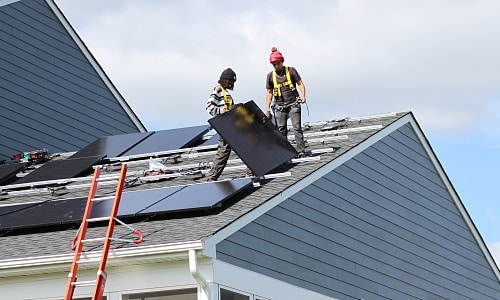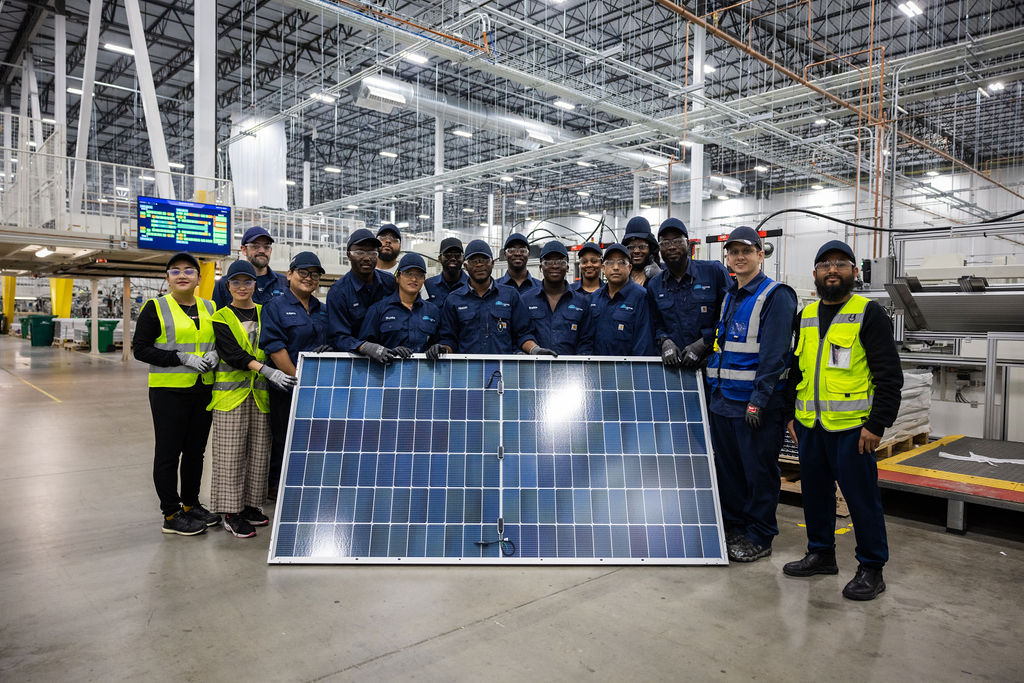The Ultimate Guide To Solar Companies In Virginia
The Ultimate Guide To Solar Companies In Virginia
Blog Article
Solar Energy Installers Virginia: Lumina Solar Concentrates On Providing Advanced Photovoltaic Solutions For Residences And Services
History and Establishing
Have you ever wondered how a solar panel business springs from a simple stimulate of motivation into a powerhouse of renewable energy? It often starts with a vision-- one fueled by a blend of development, decision, and a pinch of serendipity. The journey of numerous solar business mirrors the development of the technology itself: from bulky, ineffective panels to streamlined, high-efficiency marvels utilizing the sun's bounty.
The Early Days
In the late 20th century, when solar energy was still a specific niche principle, leaders planted seeds for what would become a worldwide motion. Think of a small workshop filled with curious engineers, tirelessly explore solar batteries. Their passion was palpable, often driven by a desire to combat climate change and reduce reliance on fossil fuels.
One such anecdote has to do with a founder who, influenced by an outdoor camping trip, realized that even in remote locations, the sun could power essential devices. This basic observation stimulated a company's objective to equalize access to tidy energy.
Founding Principles

- Innovation: Continuously pressing the limits of solar innovation to enhance effectiveness and toughness.
- Sustainability: Committing to environment-friendly manufacturing and minimizing carbon footprints.
- Accessibility: Making renewable energy services budget friendly and useful for daily users.
Turning points in Development
| Year | Secret Event |
|---|---|
| 1985 | Business established in a small garage, concentrating on research and advancement. |
| 1995 | Commercial solar panel product released, gaining regional attention. |
| 2005 | Expanded to global markets, embracing worldwide renewable energy objectives. |
| 2015 | Introduced advanced solar panel technology with improved energy conversion. |
Isn't it remarkable how these incremental steps, typically neglected, shape the energy landscape today? The solar panel business story is not just about innovation; it has to do with an unrelenting quest for a brighter, cleaner future.

Innovations in Photovoltaic Panel Technologies
Ever seen how some photovoltaic panels gleam brighter and last longer? It's not magic; it's the science of photovoltaic performance. Modern photovoltaic panel business invest greatly in innovations like bifacial cells, which record sunshine from both sides, increasing energy harvest without expanding roofing space. Have you ever wondered why some panels perform much better on cloudy days? That's due to advances in thin-film solar technology, which thrives under diffused light conditions.
Item Variations Tailored to Special Needs
One size never ever fits all. Photovoltaic panel providers now use:
- Monocrystalline panels for optimum effectiveness and smooth looks, suitable for space-constrained rooftops.
- Polycrystalline panels, which provide an economical alternative without compromising excessive output.
- Building-integrated photovoltaics (BIPV), combining solar tech perfectly into architectural elements like windows and exteriors.
Choosing the ideal item isn't practically upfront cost; it has to do with matching your environment, energy objectives, and long-lasting cost savings. Homes shaded by trees require panels that stand out in low-light scenarios, something lots of neglect up until energy expenses climb up unexpectedly.
Technical Tips for Ideal Choice
- Examine the temperature level coefficient-- lower worths indicate panels lose less efficiency on hot days.
- Search for panels with enhanced anti-reflective finishes to optimize light absorption.
- Consider the panel's guarantee not just for flaws, but for ensured power output over decades.
- Don't ignore the value of the inverter technology coupled with the panels; it can make or break your system's efficiency.
Beyond Panels: Emerging Trends
Envision photovoltaic panels that adjust their angle instantly to go after the sun-- tracking systems are ending up being more available, increasing yield considerably. Or solar tiles that mix invisibly into your roofline, changing your home into a silent, self-dependent power generator. These developments are improving what a photovoltaic panel business provides-- not just products, however incorporated energy services.
Market Presence and Global Operations
Ever wonder why some solar panel business appear to sprout up in every corner of the globe while others barely make a get more info ripple? The difference lies not simply in innovation however in mastering the art of navigating varied markets. Broadening internationally is like planting seeds in various climates-- you need to understand each environment's unique conditions to prosper.
Take, for example, the detailed dance of logistics and supply chain management. Shipping panels midway across the world isn't just about distance; it has to do with timing, customs, tariffs, and adjusting to local need changes. A company with robust global operations prepares for these variables, guaranteeing panels show up on schedule without inflating costs. This foresight is no small task and often separates market leaders from followers.
Key Techniques for Expanding Market Presence
- Localized production: Developing production centers near target markets decreases shipping delays and import intricacies.
- Strategic collaborations: Collaborating with regional companies accelerates market penetration and develops trust.
- Adaptive product style: Customizing photovoltaic panel tech to weather, sun strength, and infrastructure subtleties enhances efficiency and approval.
What about the human element? Solar panel companies running worldwide should reconcile cultural differences and regulatory subtleties without losing sight of their core mission. For instance, what operate in a sun-drenched desert might falter in a damp seaside region. In some cases, the most ingenious option is simply listening-- soaking up local insights to fine-tune technology and technique.
Specialists often recommend a phased rollout instead of a shotgun growth. Why risk overextension when determined development constructs sustainable momentum? Scaling wisely means balancing aspiration with operational strength - Solar Panel Company Virginia. After all, in the race for sustainable energy supremacy, perseverance can be as important as speed
Ecological Impact and Sustainability Practices
When photovoltaic panels initially emerged, lots of assumed they carried zero environmental luggage. Nevertheless, the reality is more nuanced. The production of photovoltaic cells involves uncommon earth metals and energy-intensive procedures, which can leave a large carbon footprint before the panels even reach rooftops. Yet, the real environmental expense depends heavily on the sustainability practices employed by the photovoltaic panel company throughout the lifecycle of their items.
How typically do we pause to consider what occurs to photovoltaic panels at the end of their beneficial life? Unlike batteries or electronic devices, photovoltaic panels can last 25-30 years, but disposal and recycling pathways remain underdeveloped in numerous areas. A business dedicated to minimizing ecological harm will have a robust plan for recycling photovoltaic materials, salvaging important silicon, glass, and metals to prevent garbage dump build-up.
Secret Sustainability Techniques
- Using low-impact manufacturing strategies that lessen water and energy consumption.
- Carrying out closed-loop systems to recycle production waste back into new panels.
- Participating in transparent supply chain audits to guarantee ethical sourcing of raw products.
- Creating panels for simpler disassembly to assist future recycling efforts.
It deserves noting that some solar companies have pioneered ingenious methods, such as integrating eco-friendly components or using less toxic chemicals throughout fabrication. This not just lowers ecological strain but likewise sets a precedent for the industry. The question stays: can the solar industry really pivot towards a circular economy model without compromising effectiveness or affordability?
Specialist Tips for Assessing Sustainability
- Ask about the business's dedication to carbon-neutral manufacturing and whether they balance out emissions.
- Examine if they partner with accredited recycling facilities committed to photovoltaic panel waste.
- Search for transparency reports detailing environmental impacts and sustainability objectives.
- Consider the longevity and service warranty of panels as an indirect measure of resource effectiveness.
In the end, going with solar power must mean more than simply slashing electricity bills; it has to do with nurturing a future where energy is gathered properly and waste is attentively managed. Photovoltaic panel companies that accept this philosophy not only light up homes however likewise cast a brighter light on sustainable innovation.
Report this page